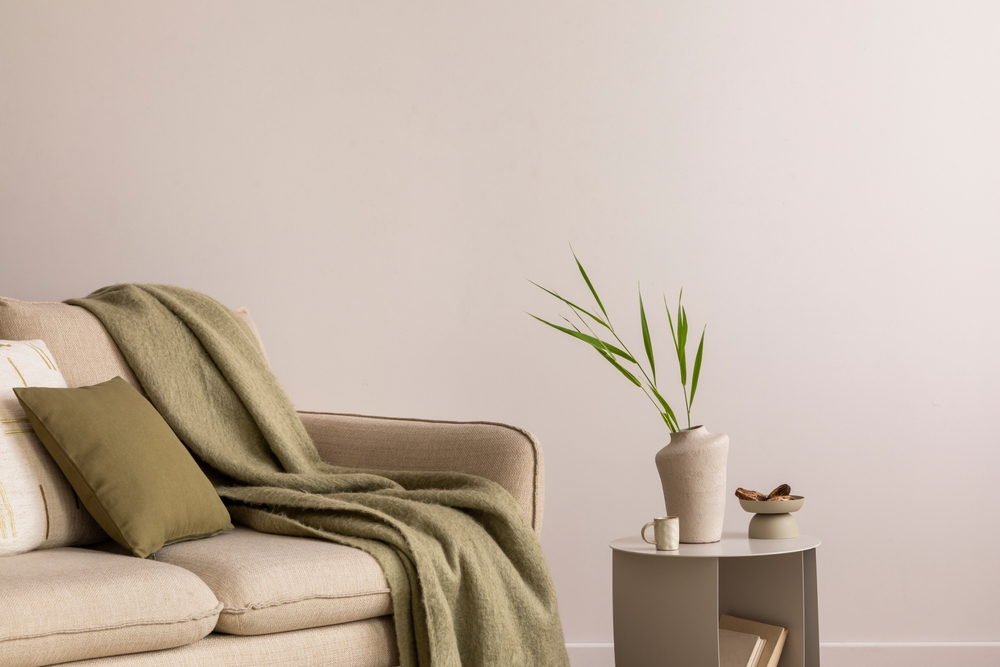Are you feeling overwhelmed by clutter and all the stuff in your home? Do you feel like your possessions are owning you instead of the other way around? You’re not alone. Many people today are adopting a minimalist lifestyle to improve their happiness and fulfillment.
What is Minimalism?
Minimalism is a lifestyle that focuses on reducing possessions and unnecessary consumption. The goal is to remove anything that doesn’t add value or serve a purpose in your life. Minimalists aim to own fewer, high-quality items that they truly use and appreciate.
By clearing away the excess stuff, minimalists create more free time, space, and mental clarity. They can focus on what’s meaningful – like relationships, personal growth, experiences, and gratitude.
Minimalism Reduces Stress
A cluttered home is a stressful home. Piles of stuff distract us, overwhelm us, and make it hard to focus. Scientific studies have shown clutter negatively impacts the mind:
- It competes for our attention and drains mental resources. Trying to overcome clutter uses up brain power you could use for more important things.
- Clutter bombards our senses, causing a never-ending sense of busyness, distraction, and even anxiety.
- Visual clutter in particular leads to overstimulation and makes it hard to concentrate.
Decluttering creates a cleaner, calmer environment. Owning less also means:
- Less cleaning and chores to maintain possessions. No more stressful weekends spent dusting knick-knacks or cleaning out overflowing closets.
- Less financial burden from purchasing, storing, and maintaining stuff.
- Less decision fatigue from too many choices. Studies show an overabundance of choices stresses us out.
Minimalists report feeling more relaxed and able to focus once they declutter. There’s a sense of control and peace from a clean, tidy home with just the essentials.
More Time and Freedom
When you own less stuff, you gain free time. Minimalists spend less time shopping, cleaning, organizing, and maintaining possessions. Without clutter demanding their attention, they have more time and headspace for meaningful activities.
Common time wasters for non-minimalists include:
- Shopping – browsing, researching, buying, returning items.
- Cleaning and organizing – regular chores plus occasional decluttering projects.
- Maintaining stuff – repairs, storing seasonal items, reorganizing.
- Monitoring and keeping track of possessions.
With fewer things demanding their attention, minimalists have more freedom. Their time is liberated from managing objects. They can focus on personal growth, relationships, experiences, passions, and hobbies instead.
Improved Finances
Living minimally also improves your finances. Accumulating possessions drains money. The minimalist lifestyle saves you cash by:
- Buying less stuff in the first place. No impulse purchases, duplicate items, or buying on sale when you don’t need something.
- Spending less maintaining what you own – repairs, storage containers/shelving, cleaning supplies.
- Reduced utilities like heating/cooling for extra living space used for storage.
- Avoiding late fees from missing payments because you bought non-essentials.
- Lower insurance premiums on housing and autos.
Minimalists are very intentional about purchases. They buy quality items that will last, not disposable clutter. And they don’t buy on impulse or succumb to marketing persuasions.
Extra money saved from minimizing expenses can be used for:
- Investing for the future – retirement, education, etc.
- Building an emergency fund.
- Paying off debts.
- Traveling and sharing experiences with loved ones.
Focus Shifts to Relationships and Experiences
Research shows after our basic needs are met, added possessions don’t make us much happier. What does lead to lasting fulfillment are shared experiences and investing in relationships.
Minimalists naturally focus more on these rewarding areas since they aren’t distracted by stuff. Decluttering your calendar along with your home creates time for quality time with friends, family, and community.
With fewer solo activities like shopping and cleaning, minimalists prioritize:
- Quality conversation instead of distracted friends mindlessly scrolling phones together.
- Shared hobbies and interests vs. solo entertainment.
- Meaningful memories from adventures together rather thanforgettable stuff.
Living minimally helps you be more present with loved ones. Less distraction leads to more engagement and cherishing relationships.
Happiness Comes from Within
In the pursuit of happiness, minimalists realize possessions and consumption provide only temporary highs. True joy comes from within. Outer factors like material goods, popularity, and other people’s opinions provide fleeting happiness at best.
Instead, minimalists nurture inner sources of peace and purpose like:
- Personal growth – learning, expanding perspectives, pursuing passions.
- Contributing – helping others, volunteering, caring for the environment.
- Mindfulness – meditating, spending time in nature, exercising.
- Appreciating the present moment rather than dwelling on the past or future.
- Cultivating gratitude for necessities like shelter and health.
- Savoring life’s simple pleasures – laughter, music, good food, sunshine.
Gratitude and Appreciation
Owning fewer possessions allows you to appreciate the items you do own. Minimalists value function and quality over quantity.
The act of decluttering also fosters gratitude. Sorting through belongings reminds you of forgotten items. You gain perspective from reflecting on past purchases.
Gratitude continues as minimalists:
- Feel abundantly blessed for necessities like food, water, and shelter.
- Appreciate items they use regularly, like favorite books or kitchen tools.
- Savor simple pleasures more, like morning coffee or walking in nature.
- Feel grateful for intangibles like health, relationships, and experiences.
This spirit of thankfulness provides lasting contentment that possessions can’t.
The Joy of Owning Less
In summary, minimalism leads to greater happiness in many ways:
- Reduced clutter decreases stress and anxiety.
- More free time spent on enrichment, not maintaining stuff.
- Financial savings to invest in priorities like retirement or travel.
- Closer relationships and more shared experiences.
- Inner contentment from gratitude and self-growth.
The accumulative effect is happiness arising from inside rather than external stuff.
Does the minimalist lifestyle sound freeing? Consider which excess possessions you could remove today. Start small if going all-in seems daunting.
As you let go of unnecessary stuff, see how much lighter and freer you feel. Happiness awaits on the other side of clutter!

